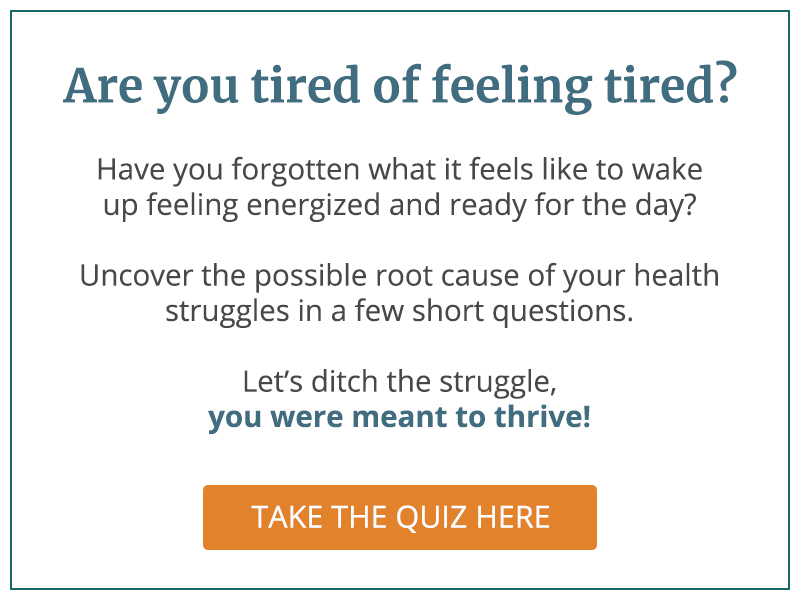I talk a lot about how important a good night’s rest can be for your health.
Sleep can be the most critical and often overlooked piece of the puzzle when trying to assess a patient’s health. Most people don’t think that lack of sleep is anything really out of the ordinary, so it’s tough sometimes to get patients to prioritize their sleep patterns.
Most people who don’t sleep enough can suffer from a myriad of health problems, from diabetes to heart disease. There are a few select people that seem to magically function just fine on less sleep than others, and if you’re one of those people, hats off to you.
The rest of us need a solid 7 to 9 hours of sleep every night to keep our bodies functioning at their best. And I know that’s not always easy to do.
But here’s another reason to keep sleep on the top of your list of priorities:
Sleep helps keep your immune system strong.
Without the proper amount of rest, your immune system can’t function properly, and your body becomes more susceptible to infectious agents.
How Does Rest Help The Immune System?
During the day, your body is using most of its resources to power up your brain and muscles. At rest, that energy can be diverted to the immune system.
When you’re asleep, levels of cytokines and melatonin increase.
Cytokines are proteins that are both produced and released while you sleep. These proteins target infections within your body.
Melatonin, with its anti-inflammatory properties, helps to support immune function. It’s even been suggested as protective against COVID-19.
When you’re asleep, your hormones and T cells (immune system workers) work in a complex symphony to restore and repair your body.
Sleep enhances the ability of T cells to do their job properly. It allows them to better stick to and kill any pathogens they encounter, like viruses, or even cancer cells.
How Does Lack Of Sleep Hurt the Immune System?
When we don’t get enough rest, the consequences to our immune system and overall are dire.
Studies show that a lack of sleep puts you at higher risk for a number of chronic health conditions.
This is possibly because your immune system isn’t able to reset and restore your body properly overnight.
In a study of the effects of sleep deprivation, researchers found that the concentration of white blood cell count in study participants skyrocketed. That’s great right, you may ask. After all, white blood cells help fight disease.
However, this actually indicates that lack of sleep can actually increase systemic inflammation, which is a reliable marker of brain and heart health.
Likewise, in a study of sleep deprivation in young women, a relationship between lack of quality of sleep and higher levels of C-reactive protein (CRP) existed. CRP is another marker used to indicate chronic levels of inflammation in the body — which is a good indicator of disease.
Basically, cutting your sleep short can be a dangerous path to lowering your immune response and potentially putting yourself at risk for life-threatening disease.
Support Your Immunity Any Way You Can
So, we know that it’s important to eat a wide range of probiotic, prebiotic, and vitamin-rich foods in order to support immune health.
We also know that it’s important to get plenty of quality rest on a consistent basis to help give our immune system the best chance at defeating pathogens and diseases.
But we can also take other, more immediate approaches to stop the spread of infection.
We can wash our hands regularly, for at least 20 seconds in hot water, every time we come in contact with commonly used surfaces, every time we use the restroom, and before we eat.
It’s also really important to try to break the habit of touching your face.
I know it’s hard. By some estimates people regularly touch their faces 23 times every hour. That’s a lot of good opportunities for pathogens to enter your body and cause havoc. Rubbing your eyes, itching your nose, touching your mouth — these are all things we seem to do on auto-pilot.
The good news is, once you become aware that this habit is dangerous for your health, you can make a concerted effort to stop. It’s one of the easiest things you can do to help prevent the spread of illness.
>> Looking for a comprehensive guide to getting your best night’s sleep ever? Check out my blog post on 7 ways to improve sleep quality.
References
“COVID-19: Melatonin as a potential adjuvant treatment. – NCBI.” 23 Mar. 2020, https://www.ncbi.nlm.nih.gov/pubmed/32217117.
“Melatonin: Buffering the Immune System – NCBI.” 22 Apr. 2013, https://www.ncbi.nlm.nih.gov/pmc/articles/PMC3645767/.
“Melatonin, immune function and aging – NCBI.” 29 Nov. 2005, https://www.ncbi.nlm.nih.gov/pmc/articles/PMC1325257/.
“Gα s -coupled receptor signaling and sleep regulate integrin ….” 12 Feb. 2019, https://rupress.org/jem/article/216/3/517/120367/G-s-coupled-receptor-signaling-and-sleep-regulate.
“Human immune system during sleep – NCBI.” 20 Dec. 2017, https://www.ncbi.nlm.nih.gov/pmc/articles/PMC5768894/.
“Sleep and immune function – NCBI.” 10 Nov. 2011, https://www.ncbi.nlm.nih.gov/pmc/articles/PMC3256323/.
“Sleep Health: Reciprocal Regulation of Sleep … – NCBI – NIH.” 7 Sep. 2016, https://www.ncbi.nlm.nih.gov/pmc/articles/PMC5143488/.
“Why Sleep Is Important for Health: A … – NCBI.” 21 Jul. 2014, https://www.ncbi.nlm.nih.gov/pmc/articles/PMC4961463/.
“PubMed Result – NCBI.” https://www.ncbi.nlm.nih.gov/pubmed?db=pubmed&cmd=link&linkname=pubmed_pubmed&uid=18597046.
“Disturbed sleep is associated with increased C … – NCBI.” 26 Oct. 2008, https://www.ncbi.nlm.nih.gov/pmc/articles/PMC2909667/.
“Face touching: a frequent habit that has implications for … – NCBI.” https://www.ncbi.nlm.nih.gov/pubmed/25637115.



